Developers Conference 2023: It’s a wrap
The Mauritius Developers Conference 2023 has now concluded. For context, this is, for me, the highlight of the year in terms of tech events on the island. The conference brings together tech enthusiast from all over the island and abroad to share their knowledge and experiences. From insightful panel discussions to hands-on workshops, attendees have the opportunity to enhance their skills and network with like-minded professionals. The event typically features a broad range of tech-related topics such as cloud, AI, SEO, Linux, or even e-commerce.
My experience as a Speaker
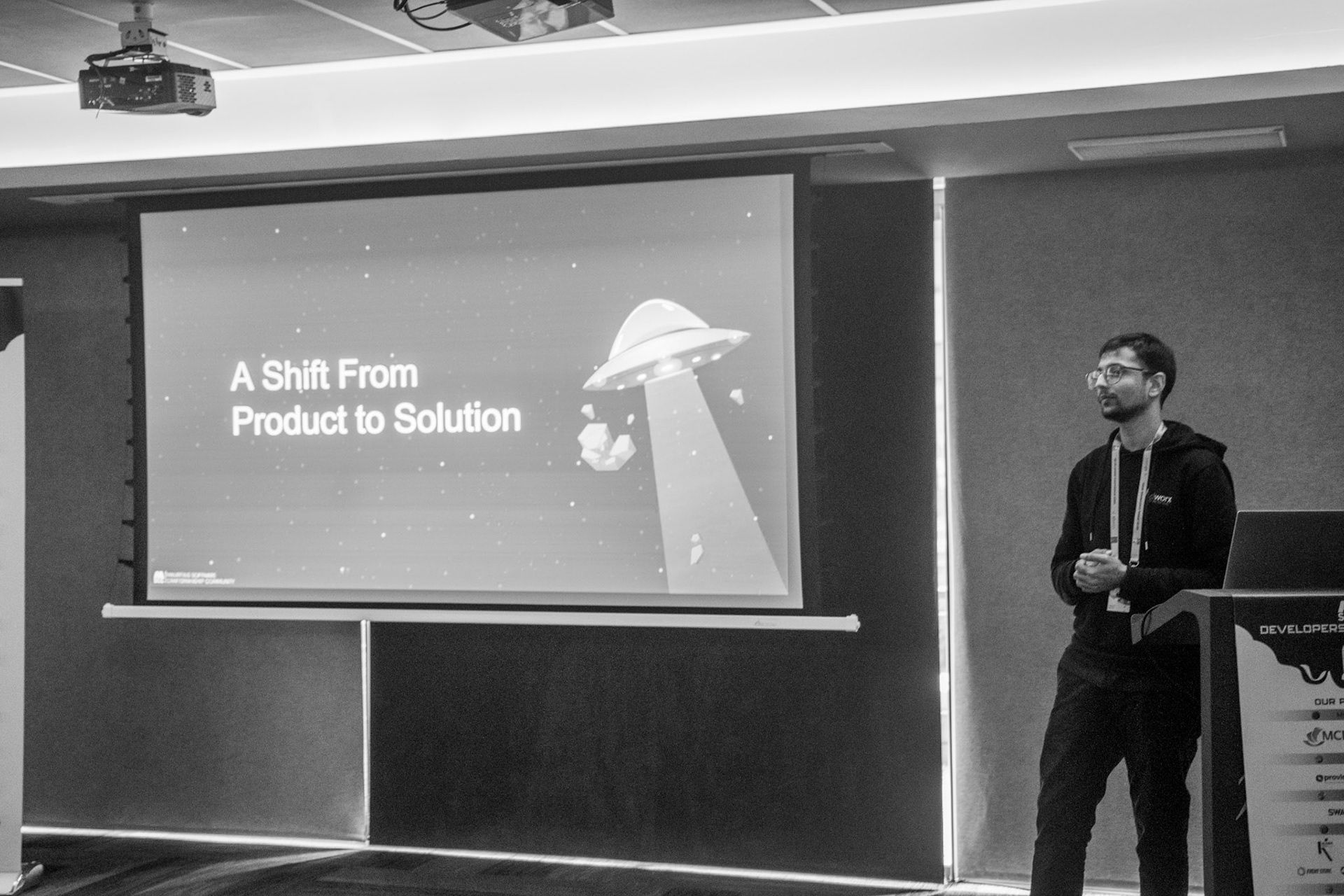
This year’s event has been special to me. While I have regularly attended as a participant, this year I went in as a speaker to share my experience working in marketing. I would be lying if I said I did not feel anxious, but that was precisely the aim. One can never aspire to grow while staying within one's comfort zone.
The core focus of my presentation was to demystify marketing. Using my own experience as an example, I explained what solution marketing is about. I did so by latching on to three core ideas:
Solution Over Product
“As individuals, we are guided by emotions, no matter how rational we might think we are. At the end of the day, we either buy things in order to avoid pain or to experience pleasure”. Using the following as a starter, I began my presentation. The key takeaway here was to illustrate how reframing a product as a solution to customer needs can lead to increased traction and success.
The Art of Communication
One of the key functions of a marketer is not just to know what to say but also how to say it in order for it to resonate with the target audience. Here I introduced the concept of storytelling and how including this element really adds value. Using a few examples and sharing my own experience, I illustrated how storytelling in a pitch can elevate it and help achieve great results. The great thing here is that this is a technique that is relevant to anybody. No matter who you are, a software developer, a project manager, a sales guy, or the CEO—everybody can achieve better results by correctly employing storytelling techniques. I also elaborated on the importance of having “one story," why it is important, and how not having one can negatively affect any business. This allowed me to seamlessly transition to my next idea, which is collaboration and co-creation.
Collaboration and Co-creation
Lastly, my presentation highlighted the power of collaboration and co-creation in developing solutions. I really wanted to drive home the idea that marketing is not a solo endeavor that can be or should be done in silos. The best piece of marketing is often the result of collaboration between all the various stakeholders. Here I used the analogy of marketing being like an orchestra performance where the developers, designers, marketers, and sales guys (basically all touchpoints) have to perform harmoniously for the audience. A slip up from any one of the performers might break the whole experience for the customer.
In essence, my presentation aimed to redefine the role of marketers as not just promoters, but as storytellers, collaborators, and solution providers. It emphasized the need for understanding customers, crafting compelling narratives, and providing solutions that add value to their lives. Overall, I truly enjoyed this experience. I had some very nice interactions, questions, and conversations after the presentation with some of the audience members. To me, this is a good sign that the presentation resonated with them and sparked their interest. I also got to learn and gain new insights through these interactions.
My experience as a participant.
During the conference, I attended several sessions. The follow are a few that I found very interesting.
Project Bonsai by Purdaseea Dhaneshwursingh
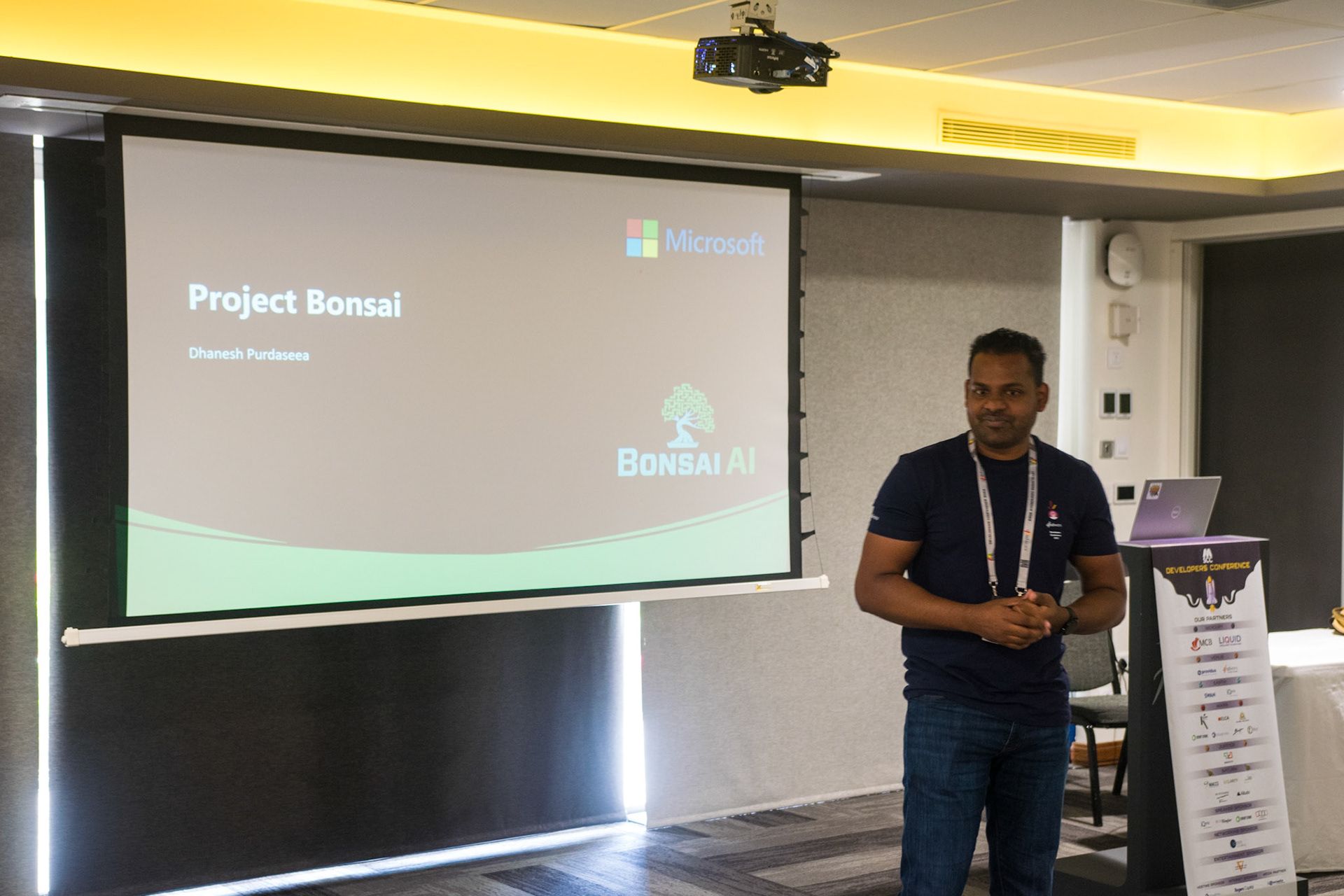
In this session, I was introduced to Microsoft Project Bonsai. This is a low-code AI platform that speeds up AI-powered automation development. The platform is used to build AI components that can provide operator guidance or make independent decisions to optimize process variables, improve production efficiency, and reduce downtime. A demo was run live during this session. I found the technology to be quite impressive.
In practical terms, this means that developers, even those without extensive AI expertise, can use this platform to build AI components that can guide operators or make independent decisions to optimize process variables. This has significant implications for industries like manufacturing, logistics, or any sector that relies on complex systems. For example, in a manufacturing setting, an AI model developed with Project Bonsai could optimize machine settings in real-time to increase production efficiency and reduce downtime. This could lead to significant cost savings and increased productivity. Similarly, in logistics, a Bonsai-developed AI could optimize routing and scheduling decisions, leading to more efficient operations and potentially significant fuel savings. The platform's low-code nature means that these benefits can be achieved more quickly and by a broader range of developers than would be possible with traditional AI development methods.
Building an E-Commerce Store That Can Handle Growth by Nathan Mangar
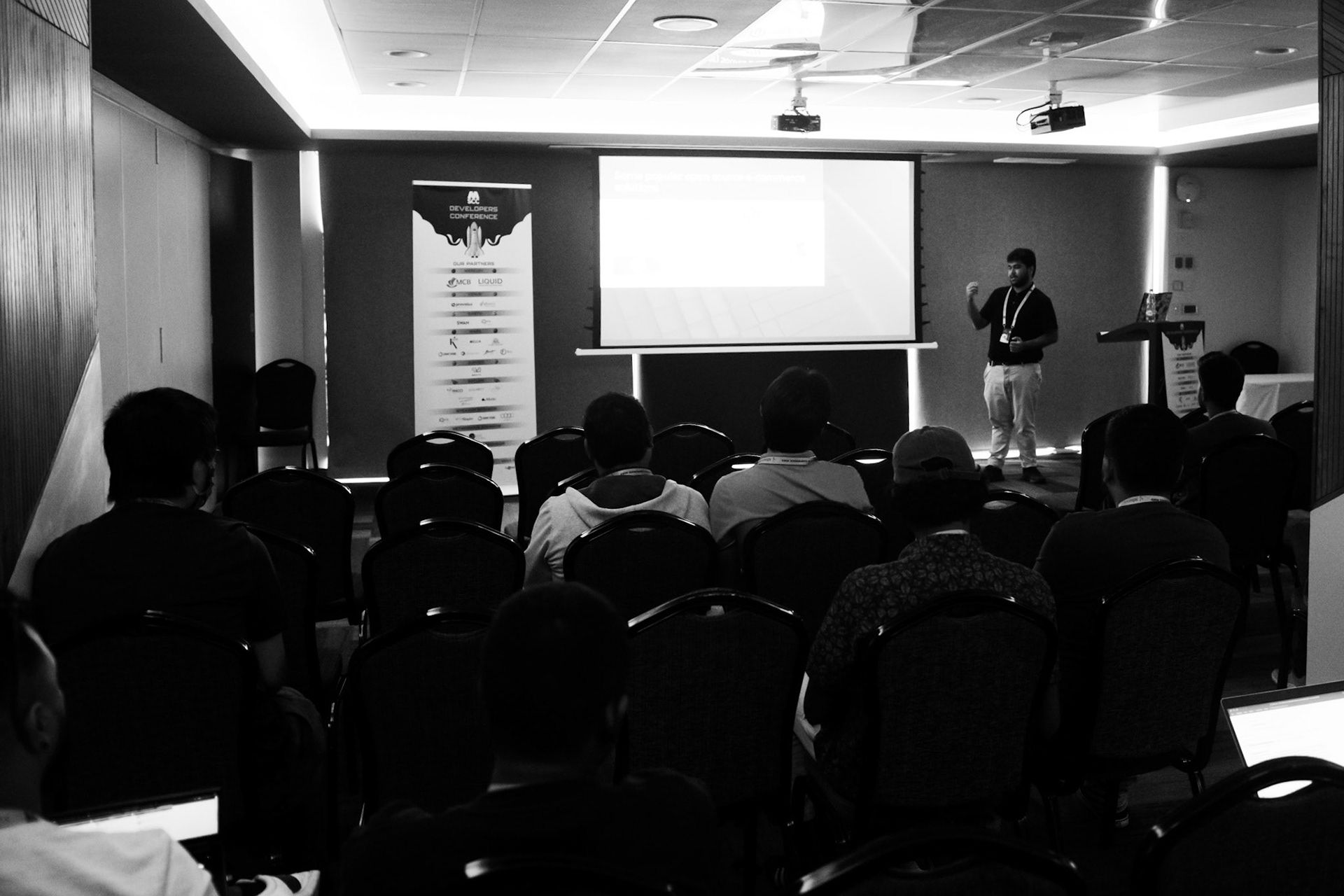
This session focused on the importance of scalability for an E-Commerce store. Common challenges and the risks of not scaling were discussed. This session also touched on how to leverage cloud hosting, CDNs, and other tools to improve performance and scalability.
After the session, I had a one-on-one discussion with Nathan; we briefly discussed the various options on the market, such as Shopify, Magento, PrestaShop and WooCommerce. It was an insightful discussion. We talked a bit about the current e-commerce space in Mauritius.
Once at home, I researched a bit on the topic, and here are some interesting insights that I have been able to gather so far:
Shopify
If you possess very little to no technical know-how, you are safe with Shopify. However, it is not the most budget-friendly nor does it offer the most customizations.
WooCommerce
This is a good open source alternative if you are already on WordPress and want a level of customization. As a plugin, it is quite straightforward, and you will get the same feel that you enjoy with WordPress. For example in Mauritius Galaxy.mu runs on the WooCommerce platform.
PrestaShop
PrestaShop presents itself as a comprehensive e-commerce solution that strikes a harmonious balance between functionality and user-friendliness. In the Mauritian e-commerce landscape, several prominent businesses, including 101 Multimedia and 361.mu, have opted for PrestaShop.
Adobe Commerce (Magento)
Magento, now known as Adobe Commerce, is a powerhouse in the e-commerce platform arena. Renowned for its scalability, flexibility, and extensive feature set, it's a top choice for businesses aiming for growth and seeking a platform that can evolve with their expanding needs. While it might require a steeper learning curve and investment compared to some other platforms, the payoff is a highly customizable and robust online store. Its modular architecture allows for a wide range of extensions and integrations, making it adaptable to various business models and industries. In Mauritius, as the e-commerce sector continues to flourish, it wouldn't be surprising to see more enterprises gravitating towards Magento, leveraging its capabilities to stand out in a competitive market. Some notable local businesses such as Priceguru.mu, Jkalachand.com and Marideal.mu, use Magento.
I intend to explore this topic further in another article or perhaps turn it into a series if I find this to be a topic of special significance.
Linux Bootcamp by Ish Sookun, Jain Ramchurn, Dereck Lam and Shravan Dwarka.
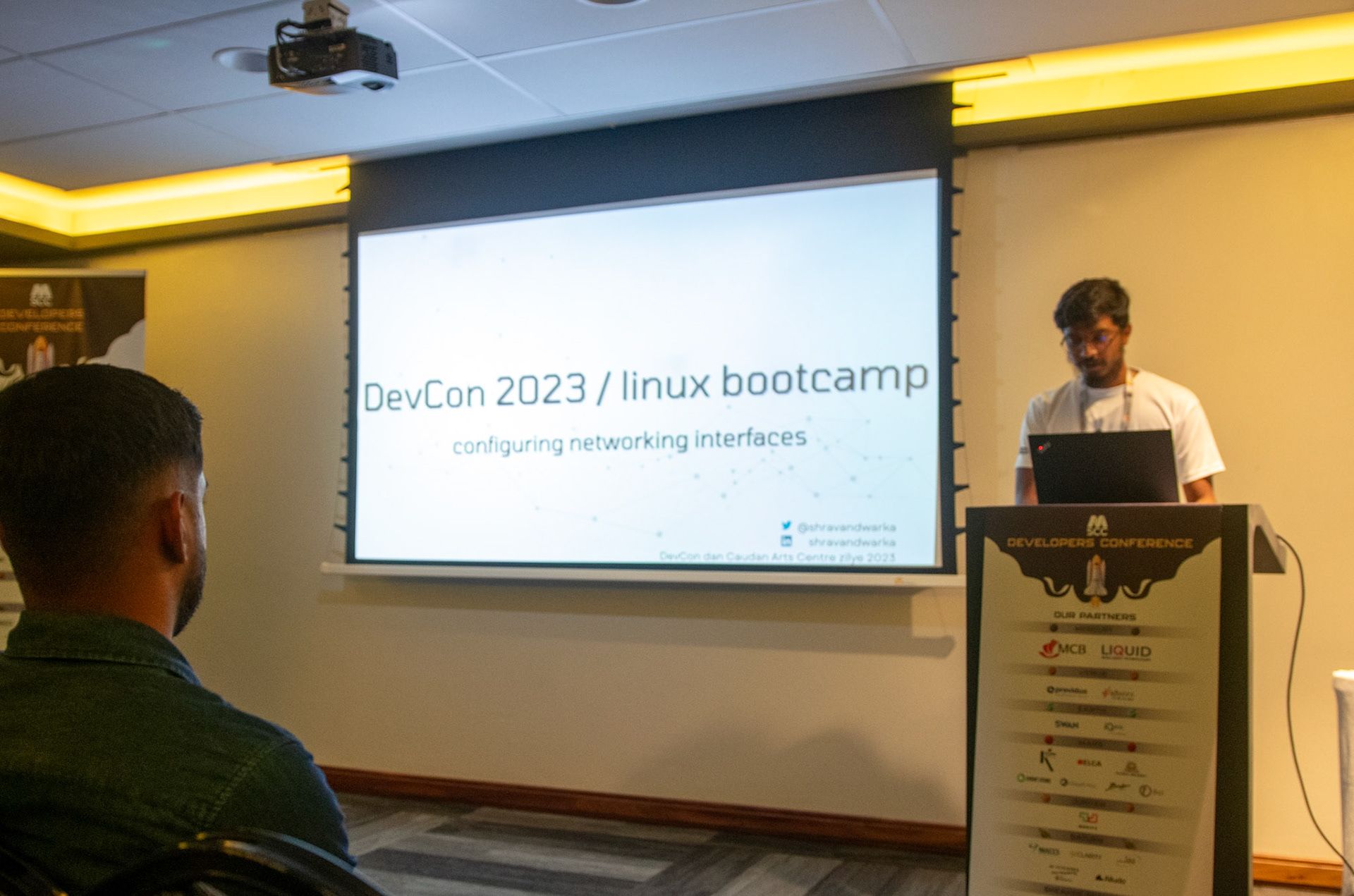
This session was very interesting. If you are a beginner at Linux, this was the perfect place to be at. The installation process of two flavours of Linux namely Ubuntu and OpenSuse were elaborated on. The boot process was dissected and although I have dabbled with linux in the past I am grateful that I attended. I actually got a much better and clearer understanding of the process. Next the filesystem hierarchy standard and, the file, directories, network interfaces etc all were elaborated upon. The session was a blend of theory and practical demo making it highly engaging.
Ish, Jain, Dereck and Shravan each shared in their own unique experience which made this session stand out for me. Here are a few key moments that stood out.

I won't pretend or claim that I understood everything that Shravan spoke about. As Ish put it, his session was for a more advanced audience. Although I am familiar with the CLI, it is not to the same level as these guys. If I occasionaly dabble in the CLI world then these guys literally live in the CLI world! And that is great too as they are absolutely essential for a healthy team. Here Shravan was actually engaging with the audience and asking us to provide with how we would identify and solve a potential issue.
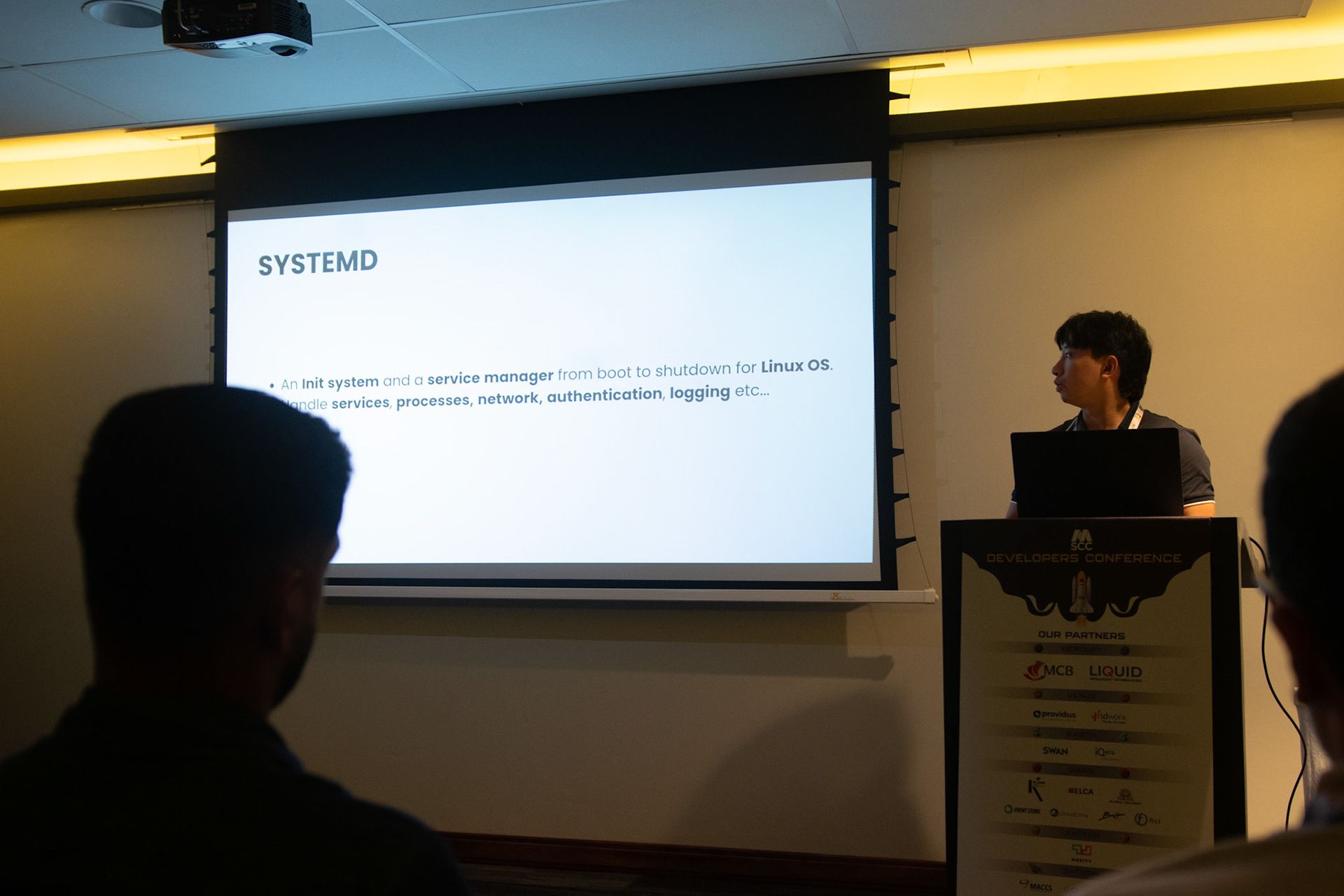
Dereck Lam explained the theoretical part of how the linux system works which was then obviously demoed by the team. As a bonus, I was even able to understand a vulnerability and to theoretically bypass the admin login on a linux machine.
Improving Linux updates in Mauritius
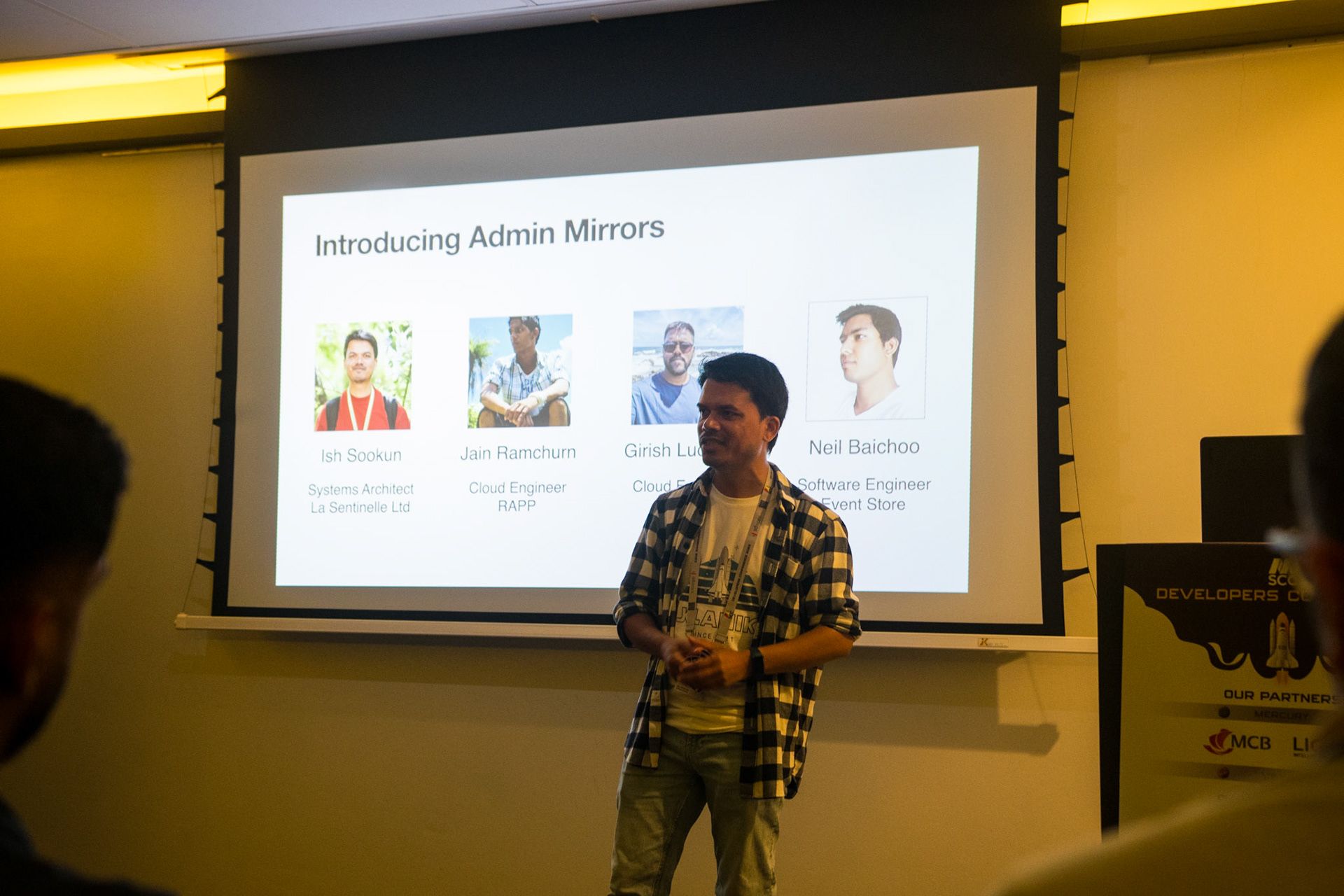
This session discussed the Linux mirrors in Mauritius, explaining how packages are installed on Linux distributions, the role of mirrors, and how to contribute to improving the overall Linux user experience. I thoroughly enjoyed this session.
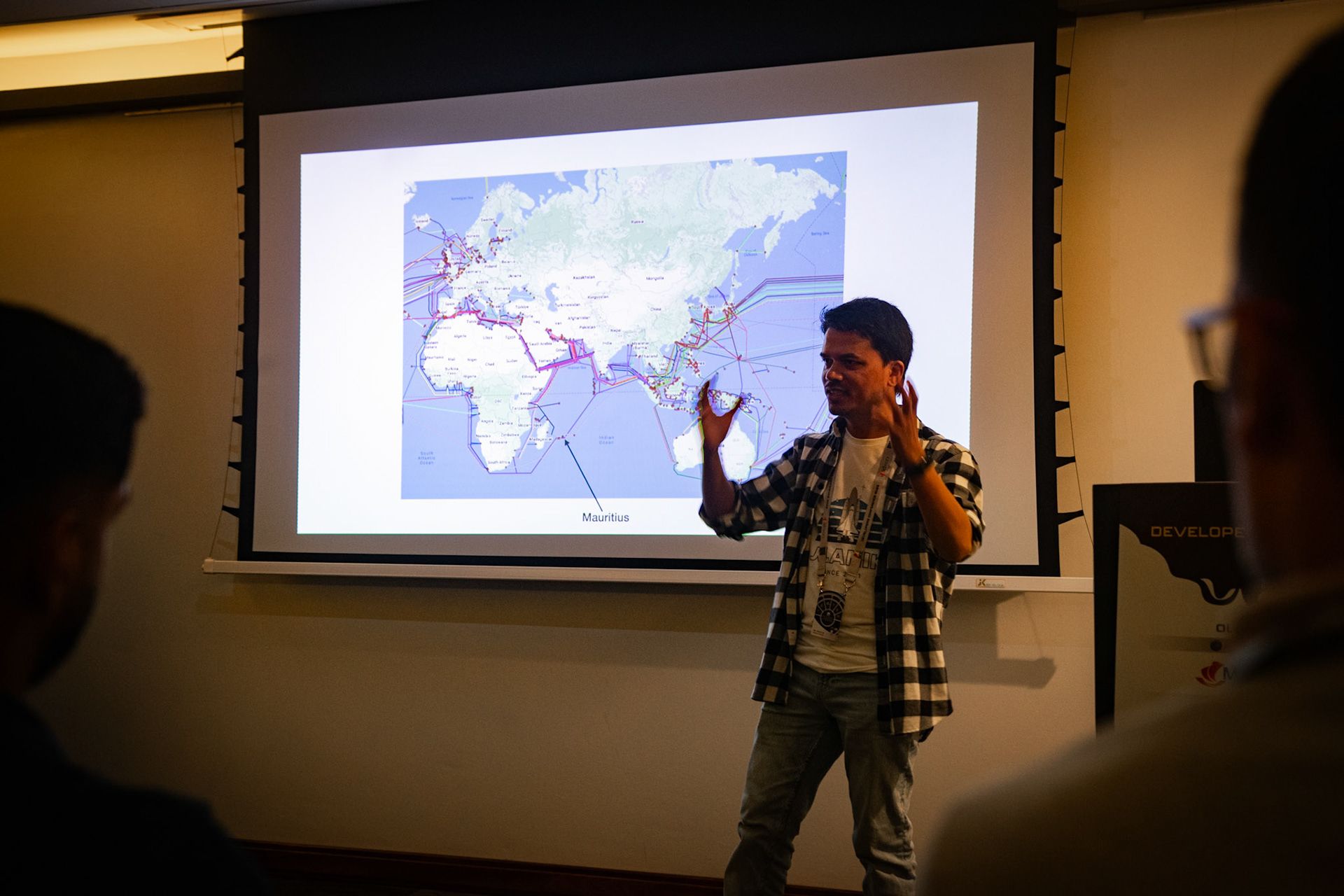
A lot of emphasis was put on how we are super reliant on these two cables and where the mirrors are at. Here key weaknesses were identified for example in case of the closest mirror failing, the download speed that we experience would be extremely compromised both at an individual and a corporate level.
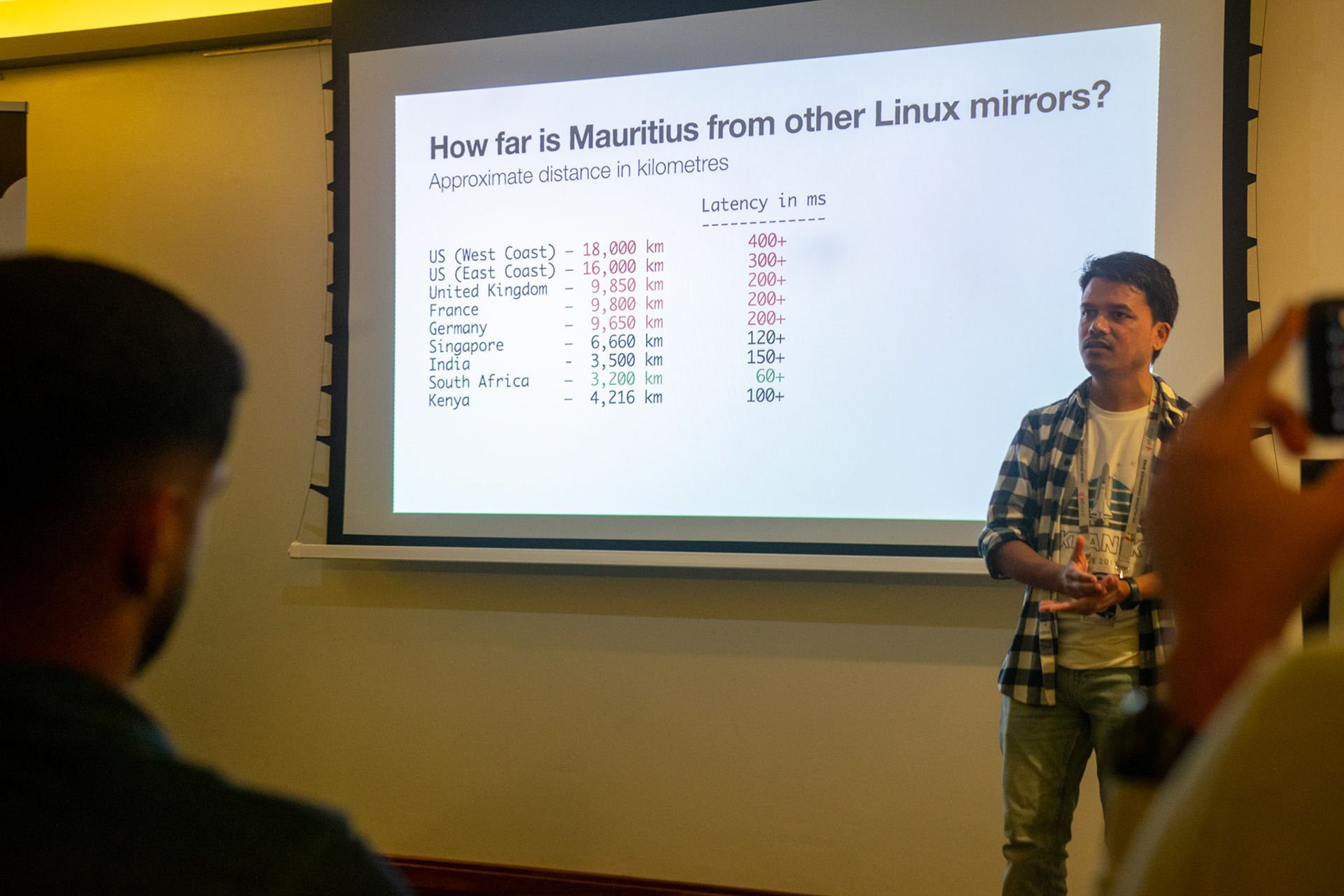
This point was further reinforced through the following table that shows the latency in millisecond. Needless to say, it isn't looking good. Hence why the importance of having local mirrors. Kudos to the team for the great work!
On another note, I am glad I chose cloud.mu for my server. After the session, I went on and ran a ping on the site, I am getting an average of 6ms which I believe is really good. This ensures that this site does not just appear clean but can also load smoothly thus providing a better experience to my audience.
Confirm your knowledge with a certification
This session emphasized the importance of certifications in the IT industry.
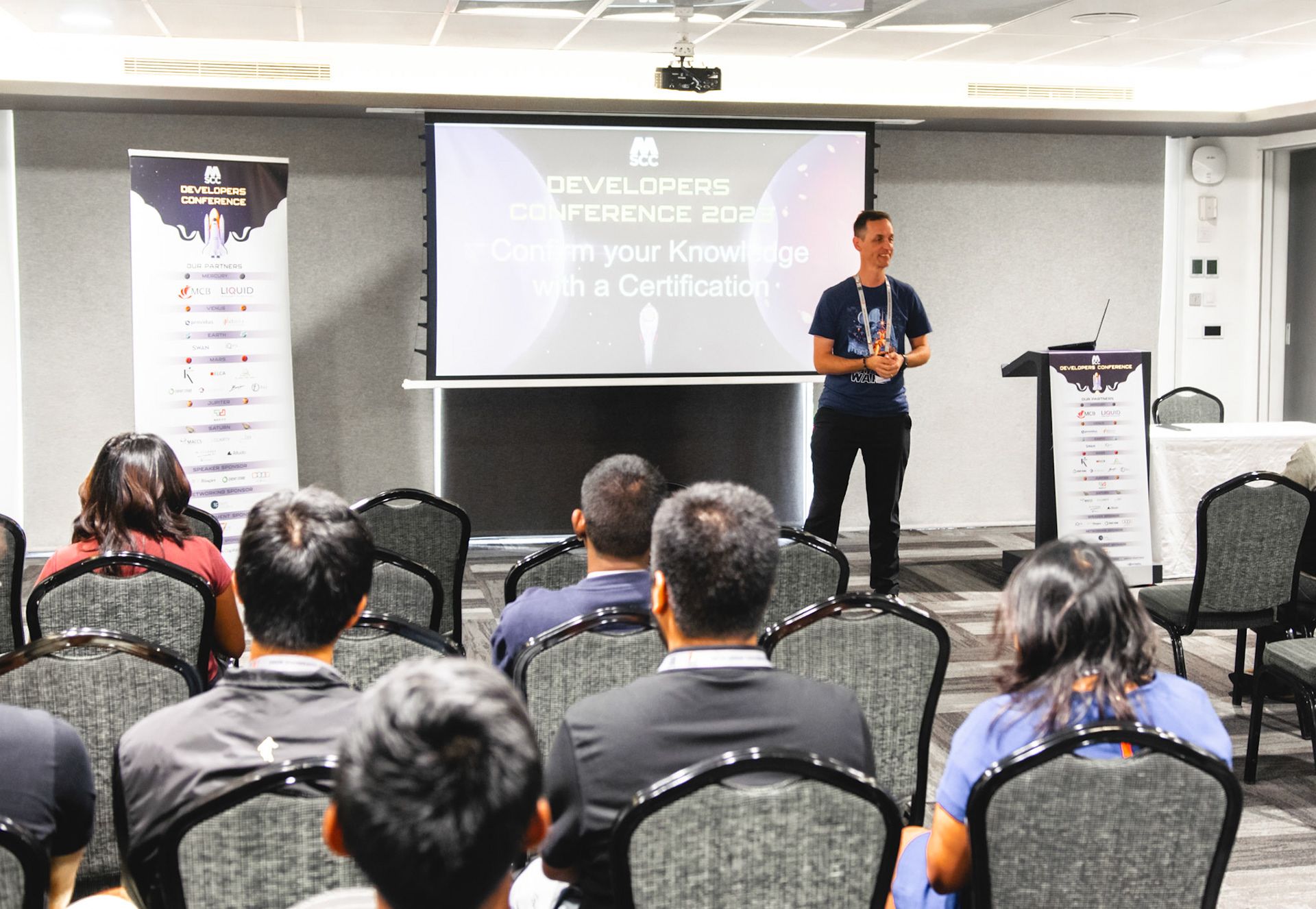
Joki started by answering the old age question of why should anyone go for a professional certificate. A number of very good points were made ranging from building credibility, confidence to advancing a careers.
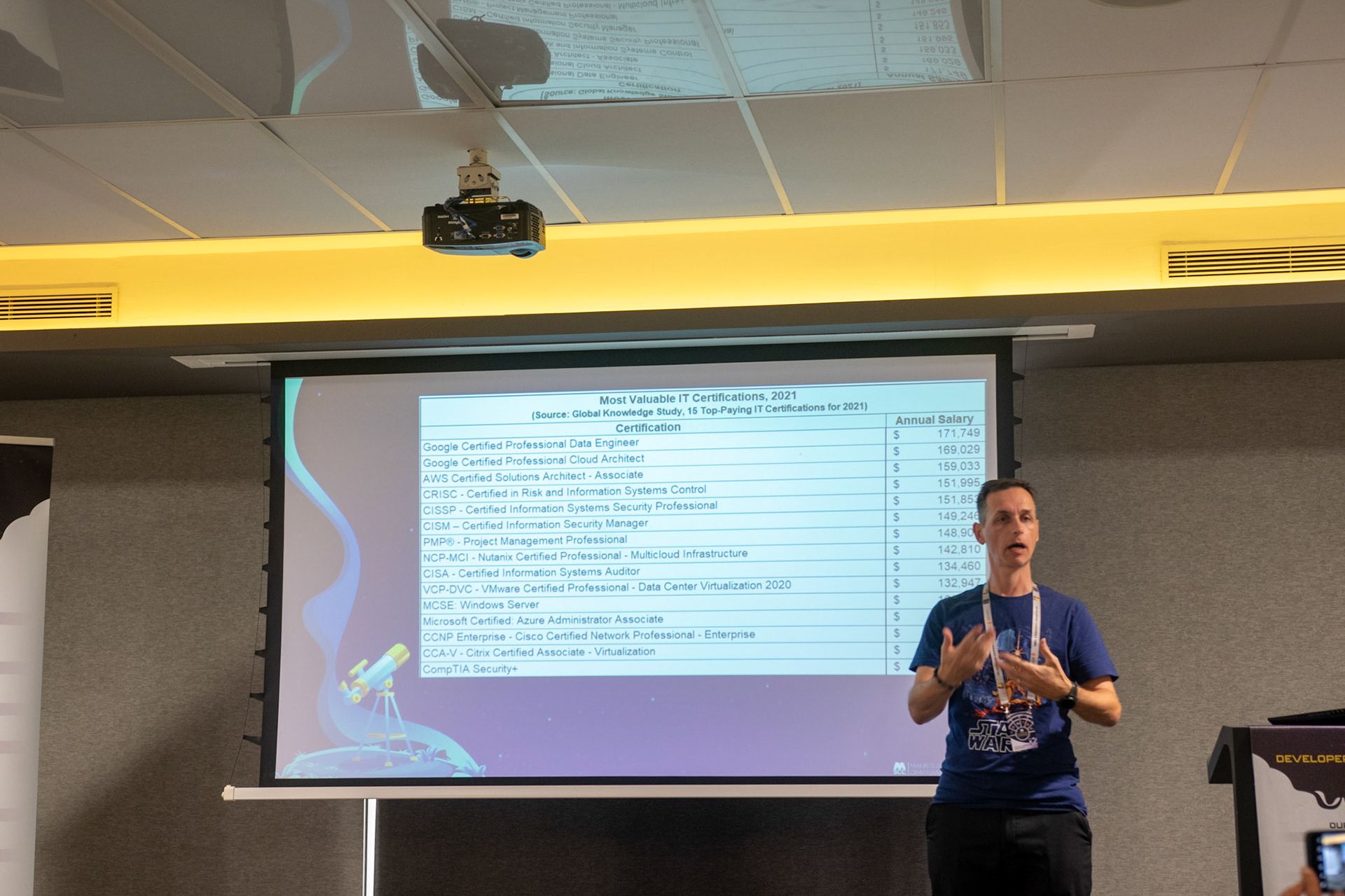
A big motivation for a certification exam is the monetary reward. Jochen speaks about this topic and highlighted some of the most well paid certifications although he very rightfully added that the data presented provided only a limited understanding from 2021. You should make your own research based on the current times and your field. For example if you are an accountant or in marketing, I doubt that these certifications will be of great value unless you are thinking of a drastic career or field change. However the underlyng principle remains true, irrespective of your field, you should strive to remain a lifelong learner and certifications are a great means to that end.
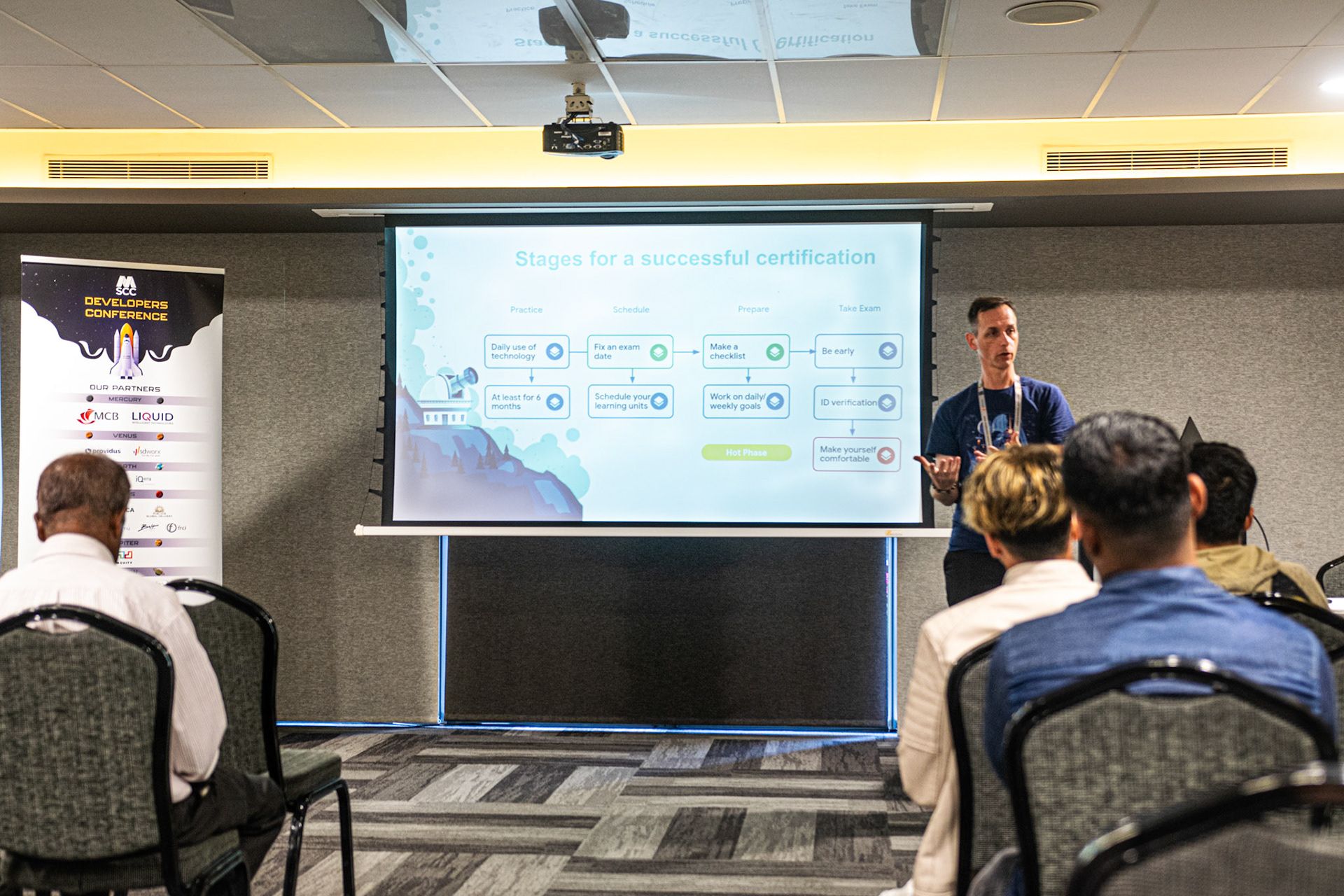
Jochen also shared his own personal experiences, tricks and tips when it comes to various certification exams. He highlighted the importance of a constant learning attitude for career and personal growth in the field. He personally still goes for certification exams, is constantly looking to learn new skills and knowledge to his toolbox which I find to be very inspiring.
Lightning Talks 2023
This was a quick succession of small sessions with the goal to educate and entertain the audience right before ending the conference. It included talks on website accessibility, the Mauritius Internet Exchange Point (MIXP), instant app development, the state of Go, line endings, debugging, and new features in CSS.
Some key moments for me were the followings:
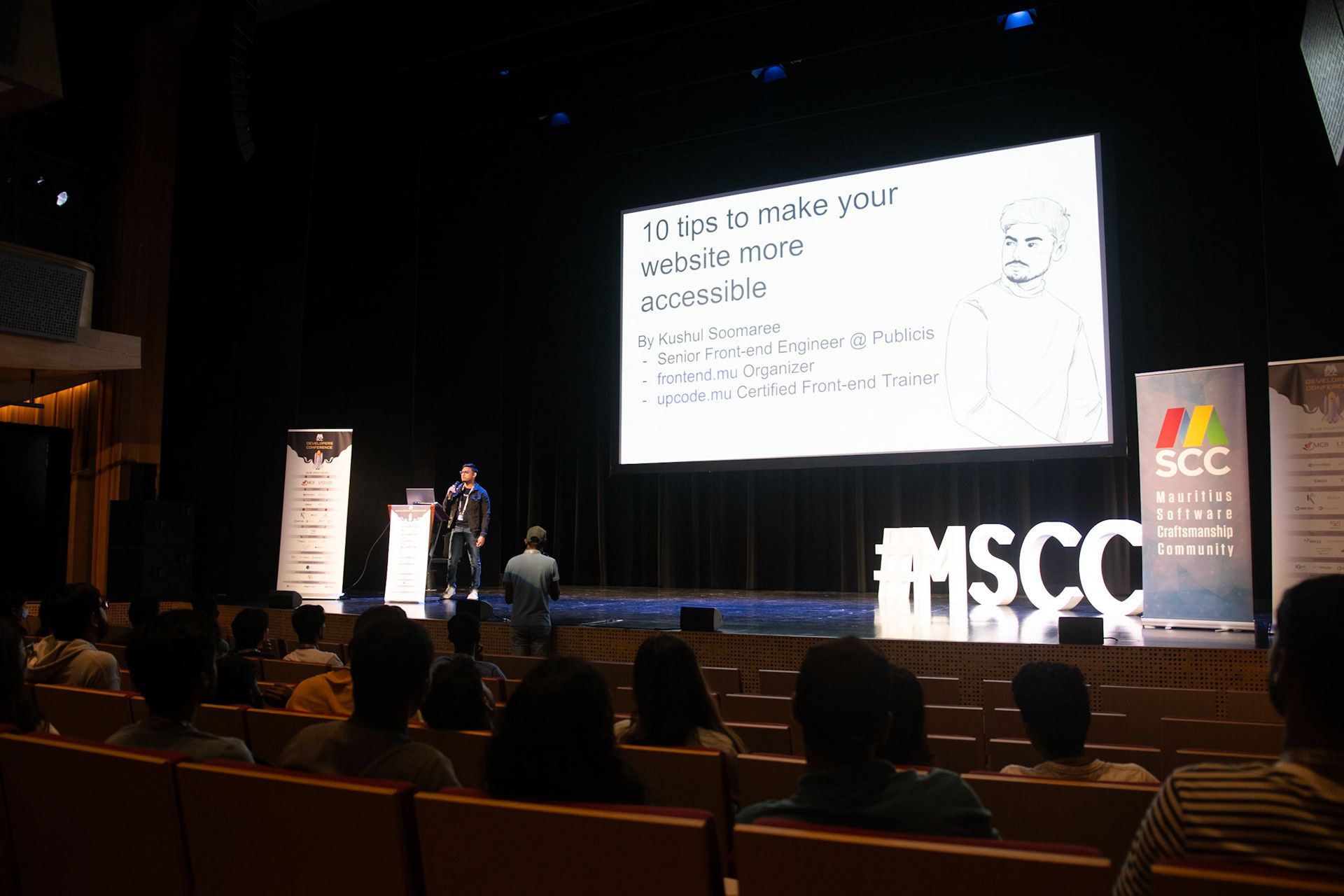
As a marketer, It is literally our job to ensure that a website is providing a great experience to the audience so I listened to this talk very carefully.
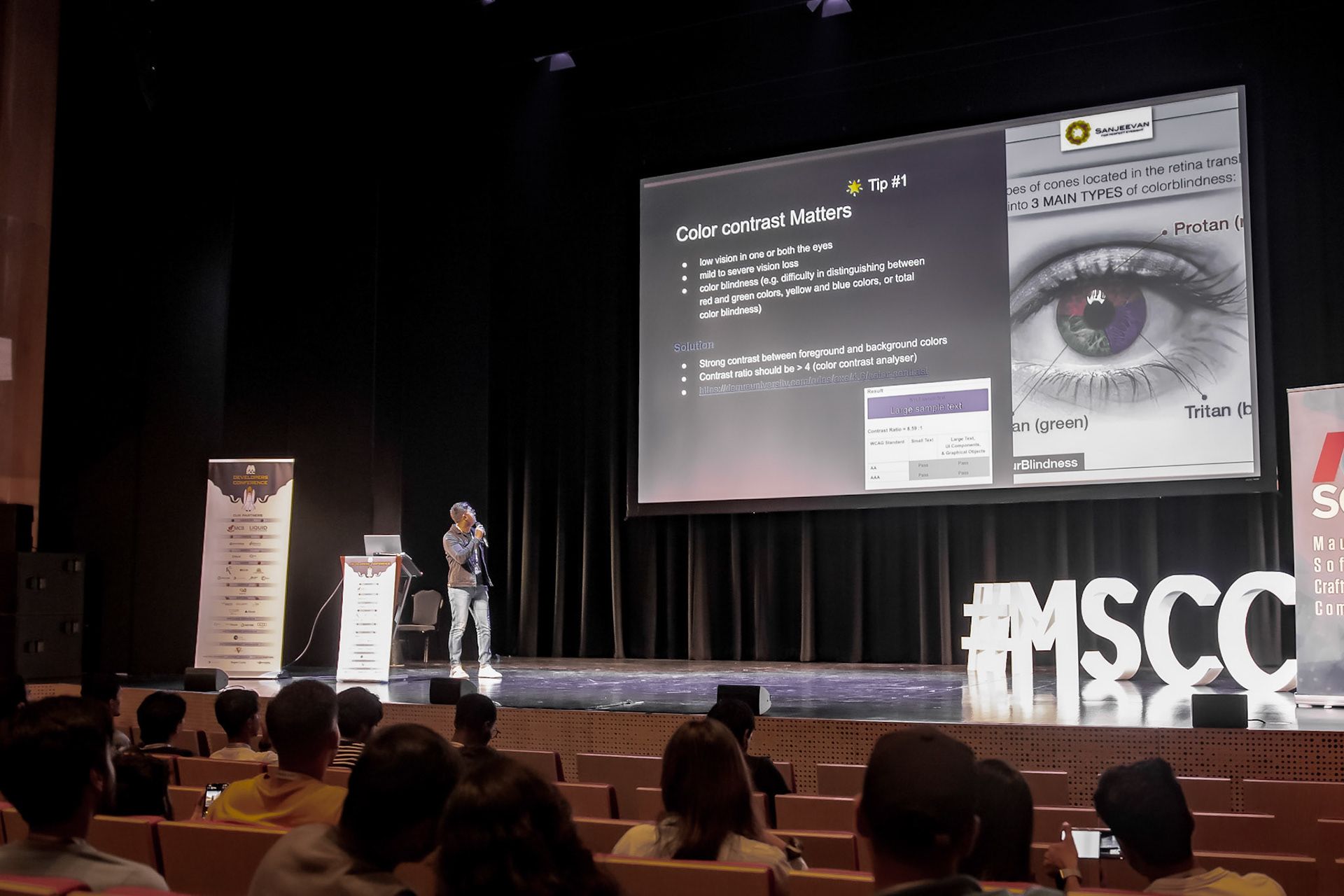
It is always a good idea to take into consideration contrast when picking colors. This is some solid advice and is applicable not just for a website but in general even when creating charts or graphs.
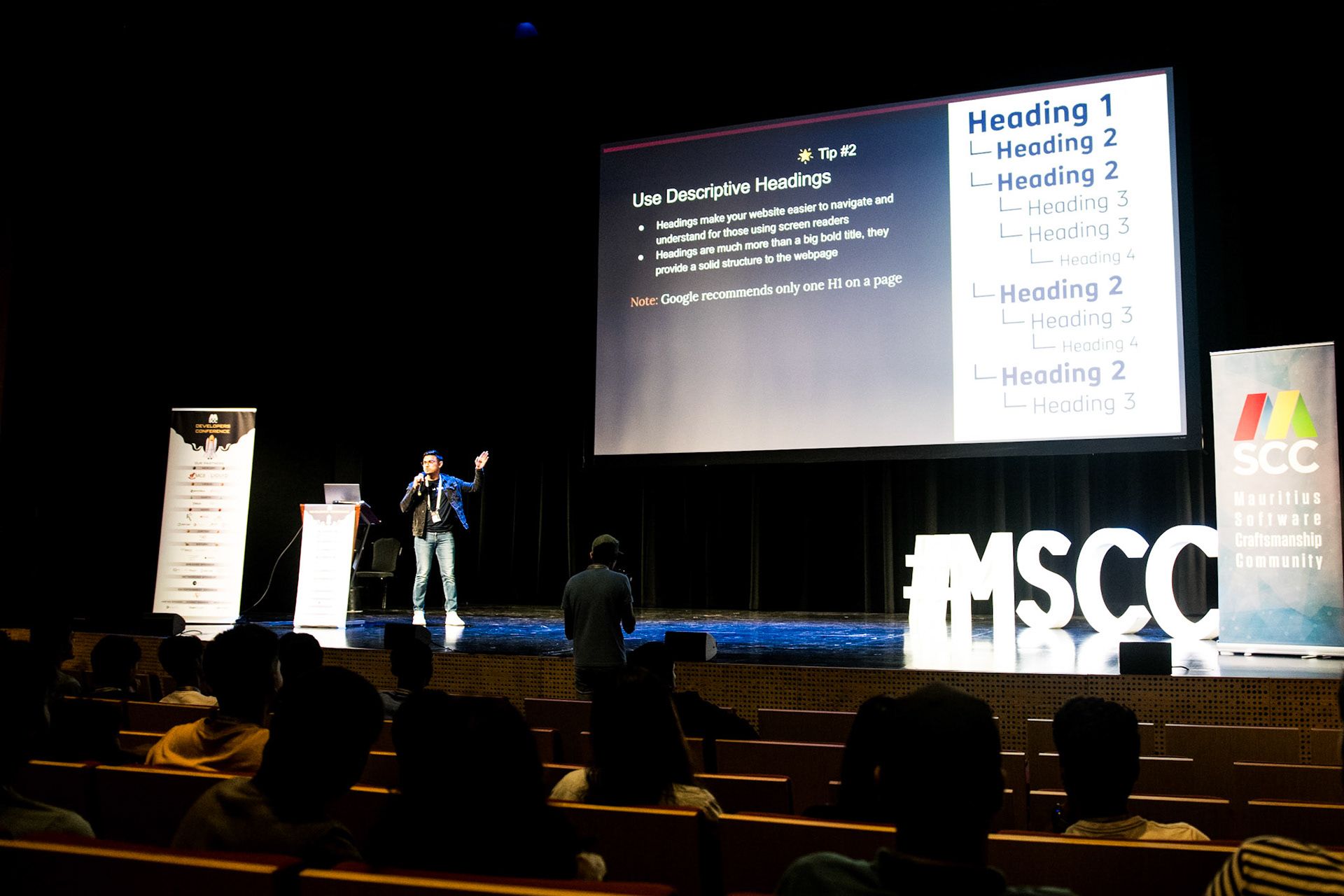
Another useful information is the following. If you are creating content for a webpage then it is recommended by google that you use only one H1 per page.
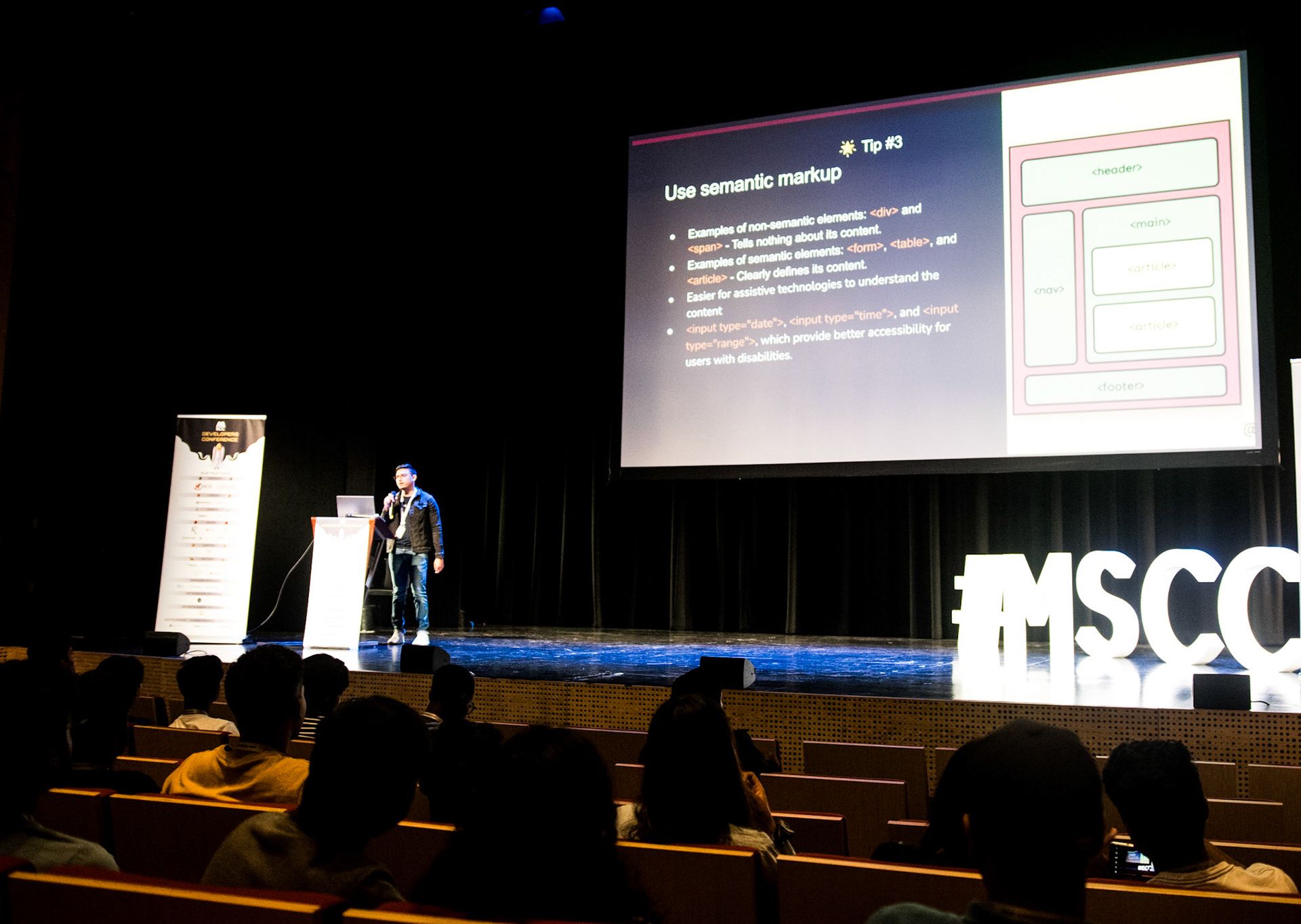
Here the presenter makes a strong case for the use of semantic markup.
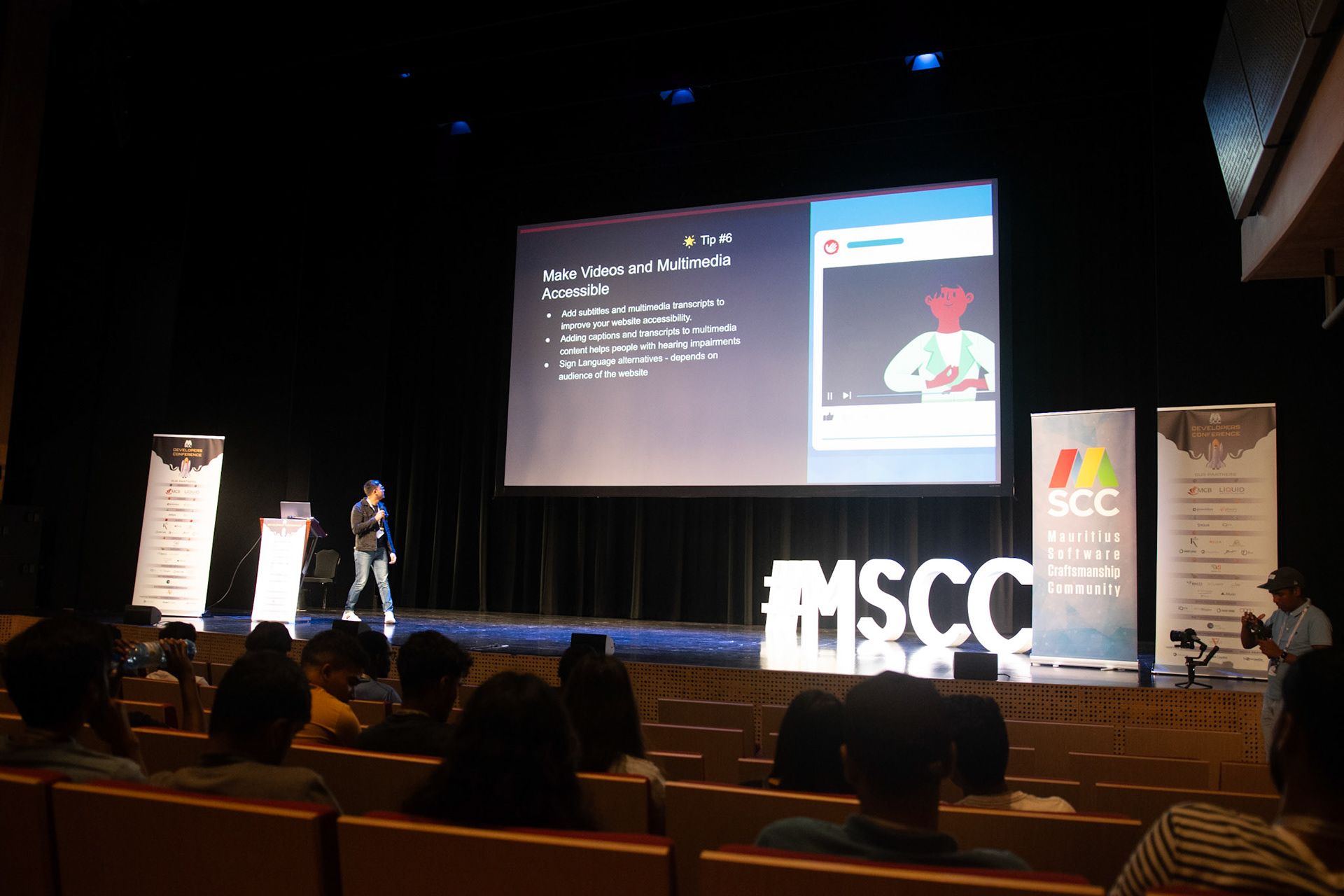
Adding subtitles to your videos and transcripts can significantly improve accessibility and the overall experience of any website.
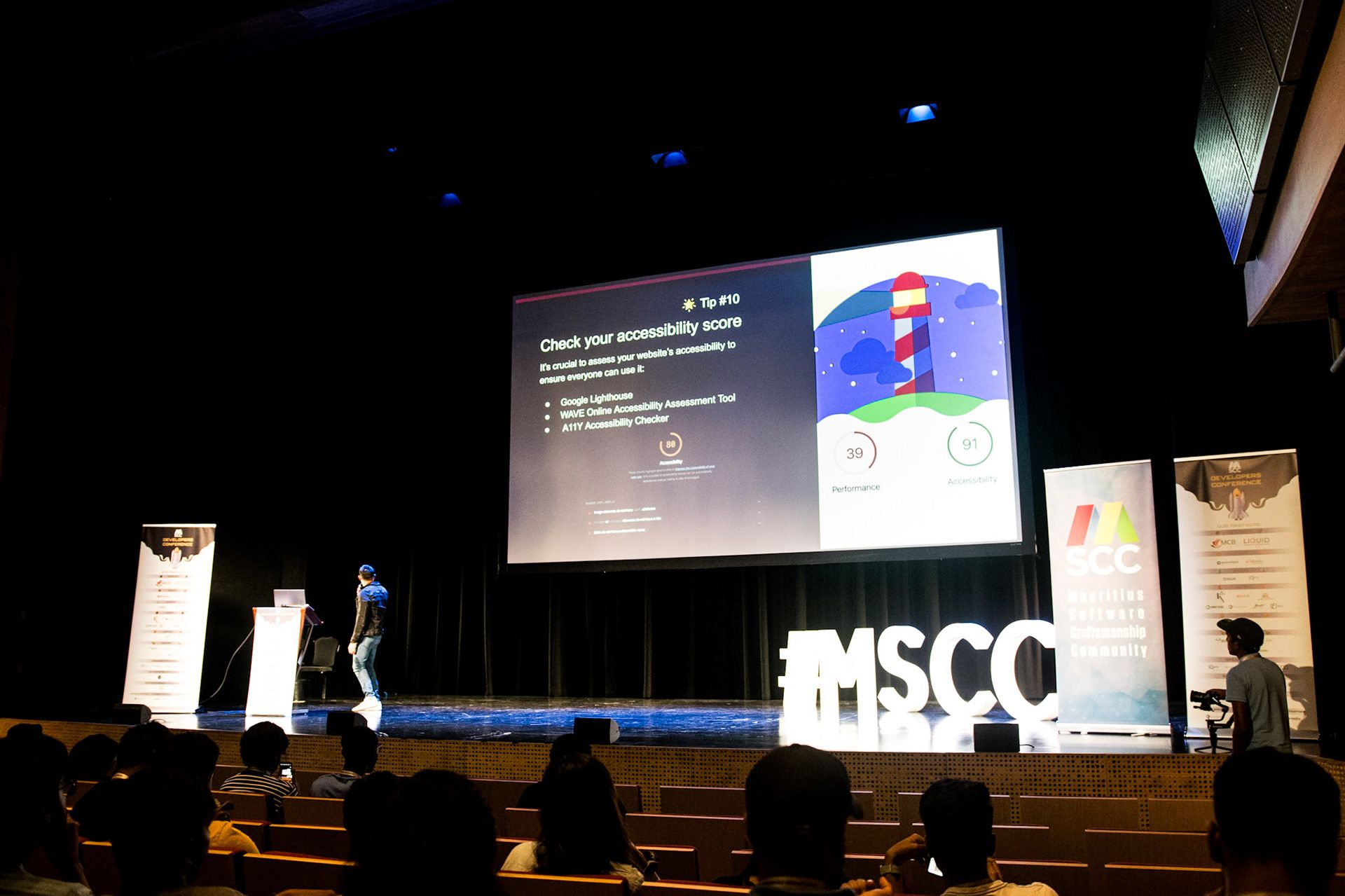
This is one of the tools that I really like and is very useful. Lighthouse is a free tool from google that allows you to audit your website's performance, accessibility, SEO and more. It is also an open-source software which means anyone can use it on any webpage. This tool can significantly improve the quality and experience of a website. I intend to cover this tool in more depth at a later time.
After this session, we had a closing ceremony. A cake was cut to celebrate the 10 years of existence for the Developer's Conference. We had 1502 unique attendees to the session which is really great. An announcement was made that the conference will be back next year and it will follow a retro theme.
Thank you for reading, I hope you have found thes info to be of value. Hope to see you at next year's conference.